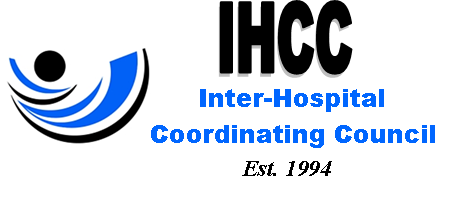Inter-Hospital Coordinating Council

The IHCC began as a partnership between Northern Nevada Public Health (previously Northern Nevada Public Health), REMSA Health, Renown Health (previously Washoe Medical Center) and Saint Mary’s Medical Center after the 1985 Galaxy plane crash. The group identified the need to have emergency plans in place and the first pre-hospital medical response plans were developed. The Multi-Casualty Incident Plan (MCIP) and Mutual Aid Evacuation Agreement were some of these, and are still in use today, undergoing revision cycles every two years. Annexes to these plans have also been created, based upon identified need through exercises, incidents and discussions with partners.
Northern Nevada Public Health (NNPH) obtains federal grants to support these efforts and now works as the fiscal agent for the Inter Hospital Coordinating Council. The main grant utilized to support the IHCC is the Administration for Strategic Preparedness and Response (ASPR) grant. The committee officially became the Inter-Hospital Coordinating Council in 1994 for the purpose of collaborating and coordinating the efforts of healthcare facilities and community stakeholders to mitigate against, prepare for, respond to, and recover from hazards impacting Northern Nevada’s healthcare community. IHCC now includes over 122 partners comprising close to 40 agencies from North Western Nevada and North Eastern California. Meetings are held monthly and subcommittees meet, as needed, for exercise and plan development and revision. Plans are developed via a regional need, a grant identified need, or exercise After Action Report (AAR). The growth of the IHCC is indicative of the collaboration model, leadership skills and governance of the NNPH staff and regional partners.
Monthly Meetings
Inter-Hospital Coordinating Council meetings are normally held on the second Friday of each month at 8:30 a.m.
Membership
Voting and Nonvoting membership includes, but is not limited to: Behavioral health services and organizations, Community Emergency Response Team (CERT), Medical Reserve Corps (MRC), dialysis centers, Federally Qualified Health Centers, home health and hospice agencies, infrastructure companies, jurisdictional partners, tribes, local chapters of healthcare professional organizations, local public health safety agencies, medical and device manufacturers and distributors, non-governmental organizations, outpatient healthcare delivery, urgent care centers, primary care providers, schools and universities, support service providers, child care services, dental clinics, social work services, and faith-based organizations.
Last modified on 09/04/2024
Let’s Stay in Touch
Sign up for our newsletter
